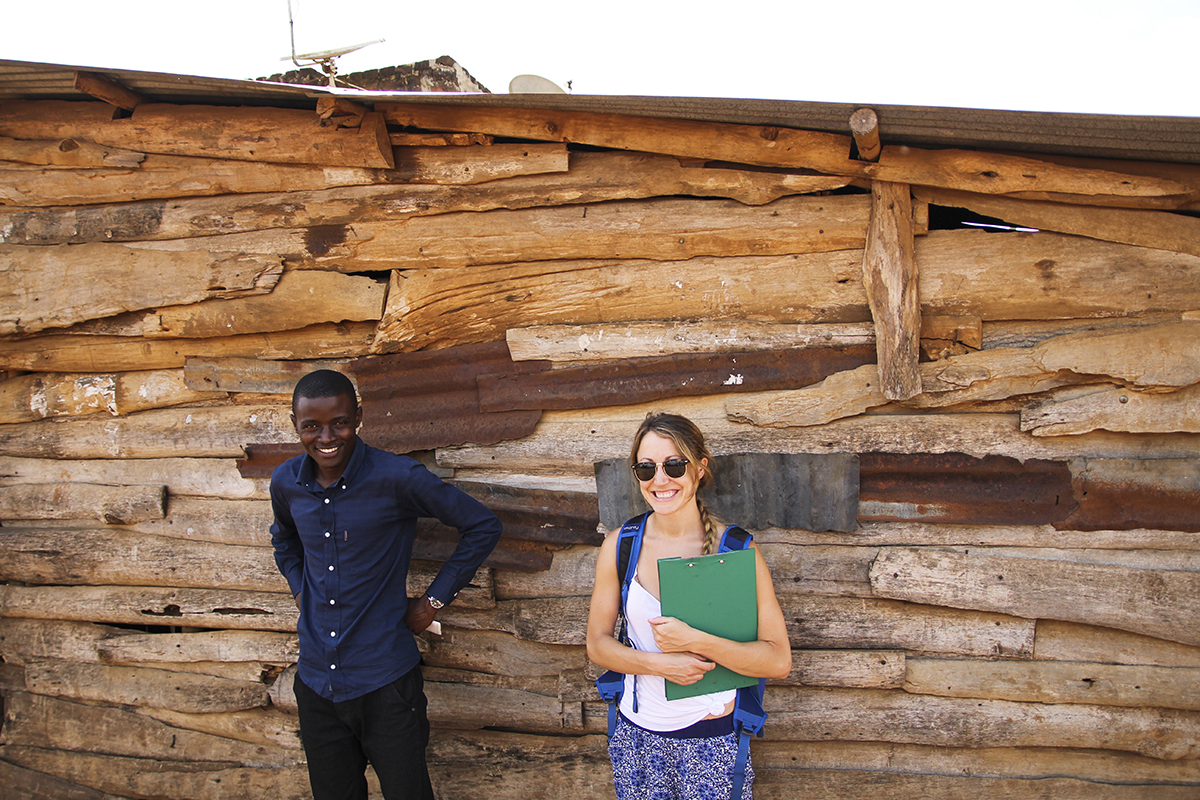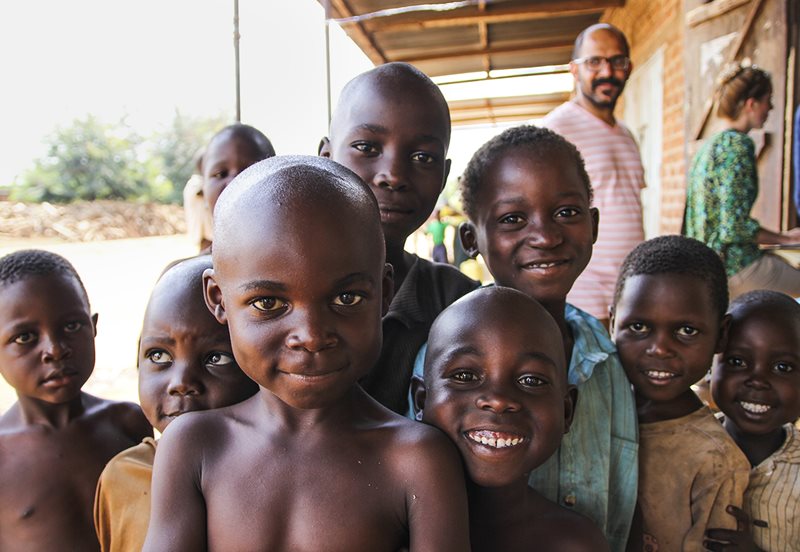By Griffin Moores

Alyse Daunis (right) stands next to the GSSE group’s driver, Hashim Mutanje, in a village near Jinja, Uganda.
“The whole wheel came off of the axle and turned sideways, and we thought the car was totaled,” said Alyse Daunis.
She and her Global Social & Sustainable Enterprise MBA research team were traveling across rural Uganda during the dry season in an old car with a leaky fuel tank. The four College of Business students were trying to identify and address the power needs of people living off the grid, and they had just run over a large rock.
There were times during the trip where anxiety would creep in, on dusty roads far from towns and cities, or when traveling by canoe or motorbike. But Alyse had been here before and trusted their driver, Hashim Mutanje, whom she had worked with at the start-up social enterprise LiTeAfrica.
Stepping out of their damaged vehicle, they were approached by a group of roughly 20 people from a nearby village who had come to lend a hand. Surrounding the car, they heaved it off the ground and moved it from the road where it would sit until Hashim could contact a local shop to have it repaired.
But the College of Business students came prepared to problem solve, and weren’t dissuaded by the temporary setback.
Moving forward
The group went on to visit dozens of small business and connect with large solar providers, interviewing people across East Africa and sharing their own ideas that they hoped could bring more power to micro-entrepreneurs and the communities they served.

Young children gather as the GSSE group visits a village near Jinja, Uganda, to interview business owners and residents.
The graduate students set out to find the gaps left by other companies and deliver a product that could help where others failed.
“We talk with people every day who are hoping that their next big investment yields the fruits they’ve planned in their heads,” the group wrote in one of their field blogs. “But oftentimes the products they buy are ill suited to the environment in which they’ll be used.”
“I’d never done in-depth interviews like that, and it was really cool sitting down and hearing their stories and challenges,” Alyse said. “I really love that person-to-person contact.” The experience further strengthened her desire to continue working in business and conduct field-based market research.
Now back in the U.S., Alyse and her group are working to develop a sustainable business plan, employing the knowledge they gained by taking the time to get to know their customers and better understand their needs.